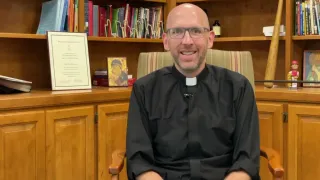May 11, 2015
Study Shows LGBT Youth Delay Seeking Medical Care
EDGE null READ TIME: 3 MIN.
Research has shown that lesbian, gay, bisexual and transgender (LGBT) people are significantly more likely than heterosexuals to avoid or delay medical care for a number of reasons.
For instance, LGBT individuals age 18 to 44 are less likely than heterosexuals to have the money or insurance for care, and even partnered gays and lesbians are twice as likely to be uninsured. Then there is the question of stigmatism and homophobia, the fear of which can lead to less access to care. On top of that, many fear to disclose their sexual or gender identity to their physicians, which can also have an impact on quality of care.
So it is important that physicians be LGBT-competent -- that is, be aware of and sensitive to the factors that can have a profound impact on these patients' access to quality health care. One would suspect that academic faculty practices would be largely LGBT-competent. That assumption, however, would be wrong.
A new UCLA study published in the American Journal of Public Health finds that only 9 percent of academic medical practices in the United States accredited by the Liaison Committee on Medical Education have existing procedures to refer LGBT-competent physicians to patients, and only 4 percent had any policies in place to identify these physicians. In addition, only 15 percent had a list of LGBT-competent physicians.
"The data demonstrates a paucity of procedures and policies to identify LGBT-competent physicians for patients and reveals that a majority of institutions are without any LGBT health training available for their physicians," said Joshua Khalili, a fourth-year medical student at the David Geffen School of Medicine at UCLA, and the study's lead author. "Most participants had never thought about having procedures or policies in place to identify LGBT-competent physicians. Some respondents questioned the necessity or utility of facilitating patient access to LGBT-competent health care.
"Such responses suggest that many participants were unaware that health disparities exist for LGBT individuals," he added.
In 2012 the researchers invited all 138 accredited academic faculty practices in the United States and Puerto Rico to participate in a 15-minute phone interview or e-mailed survey. Of those, 69 participated for a 50 percent response rate; they were all from the United States. They interviewed chief medical officers, medical school deans or other designated representatives to assess the existence of procedures or policies that the practice may have to identify LGBT-competent physicians and the existence of LGBT health training for their physicians.
They also assessed if the practices were aware of and used the Gay and Lesbian Medical Association's (GLMA's) online provider directory, as well as their interest to do more around the issue associated with LGBT health. In addition, they assessed if the existence of procedures, policies, training or interest were influenced by the region (that is, whether these centers were in the western, central, southern, northeastern part of the country), whether they were public or private institutions, and whether an LGBT health center existed in the same state.
Among the other findings:
� 16 percent of participating institutions had comprehensive LGBT training, 32 percent had some training and 52 percent had none at all
� 32 percent were aware of GLMA's online provider database, though only 7 percent encouraged individuals to access it
� 80 percent of participants were interested in developing and implementing policies and programs
� There were no significant differences in LGBT-competence by region, if the institution was public or private, or if the state had an LGBT health center.
The researchers noted that that the response rate differed by region. In addition, there is limited availability of institutional characteristics -- other than region, type of school funding, and having an LGBT health center in the same state -- that could be associated with the outcomes of interest. Finally, survey participants may have had varied knowledge regarding their institutions' policies and procedures around LGBT care.
But this study still identifies a need and high level of interest among participants in developing policies, procedures, and training programs around LGBT health, Khalili said. As a result, the researchers have initiated a follow-up study to determine any changes over time.
"We have contacted the 69 participants of the initial study to participate in a phone interview or e-mailed survey that again assesses the procedures and policies to identify LGBT-competent physicians and LGBT health training for physicians," said Dr. Allison Diamant, adjunct professor of medicine in the division of general internal medicine and health services research at UCLA, and the study's senior author. "Preliminary findings from this follow-up study lead us to anticipate a significant increase in procedures and training."
The UCLA Internal Medicine Summer Chief's Fellowship program funded this study.






